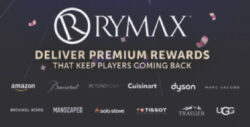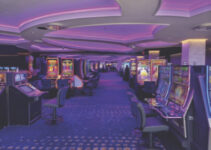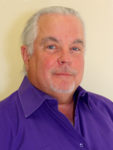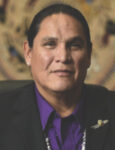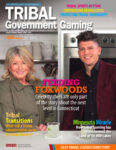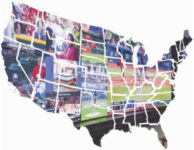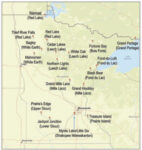
When Wendell Long left the Arizona desert to answer the call in Michigan, he knew he would be making some calls of his own. Says Long, “The brand itself is the first thing you have to think about, and for that you need the experts.”
Making smart marketing decisions can pose challenges for any tribal casino, regardless of size, geographic location or competitive landscape. And choosing the right marketing partners can sometimes be difficult.
Is it best to seek out a traditional advertising agency that offers a full-service approach, including public relations, media buying and creative and production capabilities? Or is it better to identify specific tasks and deliverables that need to be accomplished and assign resources (both internal and external) appropriately? Or, is it both?
As CEO of Casino Del Sol Resort in Tucson, Long successfully helped transform the property from just another stop off the interstate on the way to Los Angeles to a powerhouse Southwest casino destination resort with a dominant local and regional presence. The resort features multiple restaurants, a championship Notah Begay-designed golf course, an amphitheater, spa and a multimillion-dollar hotel tower—all created in harmony with the Pascua Yaqui Tribe’s vision.
“Without a doubt, one of the key factors to our success at Casino Del Sol was our relationship with our advertising agency,” says Long, who currently serves as chief executive officer for Little River Casino Resort in Manistee, Michigan, an enterprise of the Little River Band of Ottawa Indians. “First and foremost, they understood the gaming industry, and particularly how it works in Indian Country.”
Some tribal casinos have a strong internal marketing team that understands how to create the “deliverables” for an advertising campaign. But creating the actual print ads, posters, television and radio commercials and web ads is only part of the task in getting a memorable marketing message across. The right marketing partner must be part of the process in creating the campaign and helping a tribal casino understand its players and guests. What they like and dislike. How often they like to come to the casino and what kinds of things, besides gaming, motivate them to come.
“While industry experience is important, I believe the largest advantage an experienced agency has is understanding the pace and our customers,” says Steve Neely, former vice president of marketing for Casino Del Sol and Pechanga Casino Resort. “Gaming is a 24/7 operation, and not all agencies truly get that. I have had a lot of issues in the past with groups that thought they were ready to step into the industry that have failed simply because they did not understand that if something happens at 9 p.m. on a Saturday I cannot wait five business days for a solution.”
The exact science of understanding a casino guest is a territory being claimed by a lot of different people these days. Data-mining companies and web tracking systems, and all kinds of behavior-centric “tools” deliver the raw numbers and information about who is coming and when; what they are ordering to eat, what kinds of shows they are attending, and what day and time they come. So, parsing a casino guest these days requires a whole lot more than a simple understanding of an ADT score.
The “who” and the “what” are known to many, and provide a basic starting point for the marketing campaign—yes, that is true. It is also true that both of these factors are empirical and, as such, provide a snapshot, albeit an accurate one, of only part of the picture.
It is the “how” that is the elusive prize—the tantalizingly subjective exercise of creating the “magic” that will satisfy the research and reward the marketing investment made. The “how” is the hard-earned product of the marketing expertise that a tribal casino needs in order to achieve the success they desire.
“Choosing an ad agency is a lot like being in a serious relationship,” says Neely, now chief marketing officer for Acres 4.0. “To be successful, you both have to be committed to it. There has to be clarity in purpose as well as expectation. You have to have the ability to be honest when things are not going as well as you would like, and be focused on fixing them. You have to respect, value and support one another. My best relationships with agencies have been when my creative team knew when to tell me I needed to step back and listen to them, and were comfortable enough to do so.”
Picking an Agency
There could be a variety of reasons to begin the agency selection process. An existing agency might need to be replaced. Or, an existing marketing consultant or source might need to be augmented—or replaced. A tribal casino might find it is growing incrementally and is ready to raise the bar on the sophistication of its marketing executions and subsequent awareness of its brand. A casino may also be seeking to refresh or even reinvent its brand.
Regardless of the scenario, the first step in the process is recognizing that it is you, the client, who is in control of the process. Agencies will be eager to respond to a request for services, and the chance to land a casino resort account is irresistible.
Not all of the agencies will be qualified to respond, though, and it is here that the information you give them about what you are expecting from an agency partner will help in the screening process. So, how do you inform a potential ad agency partner that you are interested in hearing from them about what they may have to offer? You issue a request for proposal (RFP) to five to 10 agencies that have experience with casino resorts and gaming, or have a compelling “book” of creative and strategic work in the hospitality and entertainment categories.
Issuing your Request For Proposals
This is the document you’ll use to explain what you are looking for in a potential agency partner. Requests for proposals can be long and complicated, or they can be succinct and understandable. Qualified ad agencies will judge the nature of the RFP’s language and specifics to weigh the opportunity for them. This is a natural part of the agency mindset.
With few exceptions, most agencies will decide whether an RFP represents a viable (and winnable) contest for a key account. If the agency decision-makers are smart—and most of them are—a decision will be made as to whether resources (i.e., money) will be spent on responding and, hopefully, being chosen to make a presentation. This is the next step on the client’s agenda (that’s you—the client)—reading the responses and choosing a list of finalists to come in and present their credentials and ideas in person.
“The most critical elements to consider are the firm’s reputation and past performance, referrals from similar companies, and the resource team that will be dedicated to the project,” says Mark Birtha, former president and chief development officer for Sol Casinos and Casino Del Sol Resort. “The firm has to get it with regards to the creativity and time put into the RFP, which many times will result in the effort you will get throughout the entire productio
n.
“They must bring passion to the table, and the RFP is one of the first indicators of how much they want to do the job and how well they will do it. Of course, the cost and timeline for deliverables are equally important to the overall decision-making process when reviewing various proposals.”
Choosing Your Finalists
Short of making the final decision, this is the most painstaking and important part of the process. You and your team will carefully read and discuss the responses. You can even weigh different parts of the RFP and score the candidates, strengths and weaknesses side by side. Some agency candidates stand out immediately—good, go with your first reaction and put them on “the list,” the magical “list” that every agency that has responded to your RFP hopes to be on.
Make no mistake about it, every agency that has taken the time and expense to respond is waiting by their cell phone or laptop.
How many finalists? That’s a subjective call. Three is a good number. And so is two. Be picky. Be choosy. Don’t burden your team or yourself unnecessarily. It’s the time to make sure that the people who come in to present prove that they know you and what you are looking for. You’ve expressed what that is through the language in the RFP. The responding agencies have either proven (or not) in their written response that they are worth a hard look. Now you are interested in meeting those who have your attention. It’s really that simple.
Says Long, “I like to hear an agency defend its strategic and tactical observations. I want to hear insights that illuminate the ideas I’m about to see in their creative. Agencies can sometimes fall in love with their own voice. and I like to see how they respond to a client challenge.
“Defend yourself. Justify the dollars I am about to entrust to you. Don’t try to read into what I want to hear, because I am here to listen to you, and I want you to impress me with your knowledge and marketing talent. If I’m not impressed in that moment, then things aren’t going well for them.”
The Agency Presentation
The big day arrives and the pressure is on. Not on you, of course, although you are hoping for great things. No, the stakes are even bigger for the responding agencies, because this is their moment. This is what they live for. In the agency world, actually getting to present to a potential new client is a penultimate moment. Only the best are chosen to “perform” on this stage. Here are the key players you’ll meet in addition to anyone else who would be assigned to the account to demonstrate “strength in numbers.”
And the winner is…
After the agencies are done presenting, your team will gather around and discuss their thoughts. It is best to take a “silent poll” via paper ballot right then and there. You might be surprised at the results. Generally, one agency rises to the top in these situations—that is, a clear leader will emerge.
If that is the consensus from your balloting, you have your agency. If not, keep the discussion going. Ask for real-life examples of why this candidate or that might or might not be a good fit. Involve everyone, because they will all have to live with the results of the decision.
“I think it’s important to choose an agency that has proven itself in our industry,” says Eileen Duffin, Little River Casino Resort’s director of marketing. “At least some of the team members must have that experience. As the client, you must demand people whose work you respect and that foster a collaborative environment with your internal team. It’s critical that the right elements be carefully integrated, because the result of what you create together has so much impact on the entire enterprise.”
Adds Birtha, now vice president and general manager for Fiesta Henderson, “You have to be able to trust that the firm you are assigning an important initiative to is not only competent but will be an effective partner that balances transparency, honesty, and professionalism at all times. Their passion for the assignment is critical, and must be mirrored by the level of integrity they have as a business partner and contributor to the overall success of your organization.”
Moving Forward—Together
Everyone loves a happy ending. You and your team have certainly earned one. But, now the work truly begins. To have success together, the agency and its new client (that’s you—remember?) have to accomplish a lot. A couple of doubles off the wall are usually not satisfactory. A half-dozen gargantuan, towering home runs over the center field bleachers is a better start. How do you put your team and its new agency in the best possible position to succeed?
You already have. Now it’s time to get back to work.



